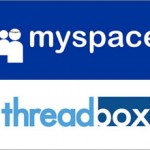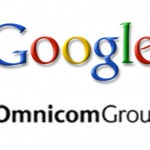 Mountain View, California — Google on Friday revealed that it has acquired online database provider Metaweb, a heavily-backed startup which has been assembling a grand database on more than 12 million “items,” from around the world, which it then provides to site owners so that they can add the information to their sites.
Mountain View, California — Google on Friday revealed that it has acquired online database provider Metaweb, a heavily-backed startup which has been assembling a grand database on more than 12 million “items,” from around the world, which it then provides to site owners so that they can add the information to their sites.
Google not only provides search results, and can manage a lot of search queries as well, but has been competing with arch rivals like Yahoo and Microsoft’s Bing to return actual answers, without forcing the user into an additional click to access another page with the actual data.
The search engine giant says that it is purchasing Metaweb to improve its search results. The company states that while some facts are easy to display, the answer to more complex questions are harder to come up with, and this acquisition it its recent efforts to include short answers to some fact-seeking queries directly on its search pages, saying that together they can deliver better answers to more complex queries.

Metaweb maintains a large database of entities and keeps track of their relationships. (Credit: Screenshot by Stephen Shankland/CNET) Jack Menzel, the director of product management at Google, explained on the Official Google Blog that Metaweb is “a company that manages an open database of things in the world.” He further added, “Working together we want to improve search and make the web richer and more meaningful for everyone.”
According to Google, the addition of Metaweb to its arsenal will help it improve its search offering. Currently, Google Search displays answers to simple questions — such as “What time is it?” — at the top of its results page, rather than compel users to go to another site.
He continued: “With efforts like rich snippets and the search answers feature, we are just beginning to apply our understanding of the Web to make search better,” but some searches remain out of Google’s reach.
Menzel moved on saying: “Type [Barack obama birthday] in the search box and see the answer right at the top of the page. Or search for [events in San Jose] and see a list of specific events and dates. . . But what about [colleges on the west coast with tuition under $30,000] or [actors over 40 who have won at least one Oscar]? These are hard questions, and we have acquired Metaweb because we believe working together we will be able to provide better answers.”
The move is notable because Google’s mission–to organize the world’s information and make it universally accessible–typically applies its own algorithms to sort others’ data. Besides, Metaweb has some resemblance with Google–facing the challenge that, for example, people can use dozens of different terms to describe the same entity or that the same name can refer to different entities.
In fact, Metaweb’s Freebase, which consists of a “database of more than 12 million items, including movies, books, TV shows, celebrities, locations, companies and more” should come in quite handy for the search engine giant. The genius of that approach is that Google doesn’t have to worry about creating the information, only about processing it.
“Google and Metaweb plan to maintain Freebase as a free and open database for the world,” Menzel said. “We plan to contribute to and further develop Freebase, and would be delighted if other Web companies use and contribute to the data. We believe that by improving Freebase, it will be a tremendous resource to make the Web richer for everyone.”
No financial details of the the deal were released, but the acquisition price was likely substantial. It should be exciting to see what happens. As natural language search has of course represented something of a holy grail for search engine companies for quite some time.
Metaweb had raised $57 million in funding, including $42 million in a second round two and a half years ago. Investors included Benchmark Capital, Goldman Sachs Capital Partners, DAG Ventures, Millennium Technology Ventures, and the Omidyar Network.
Here is a video explaining Metaweb’s approach:


